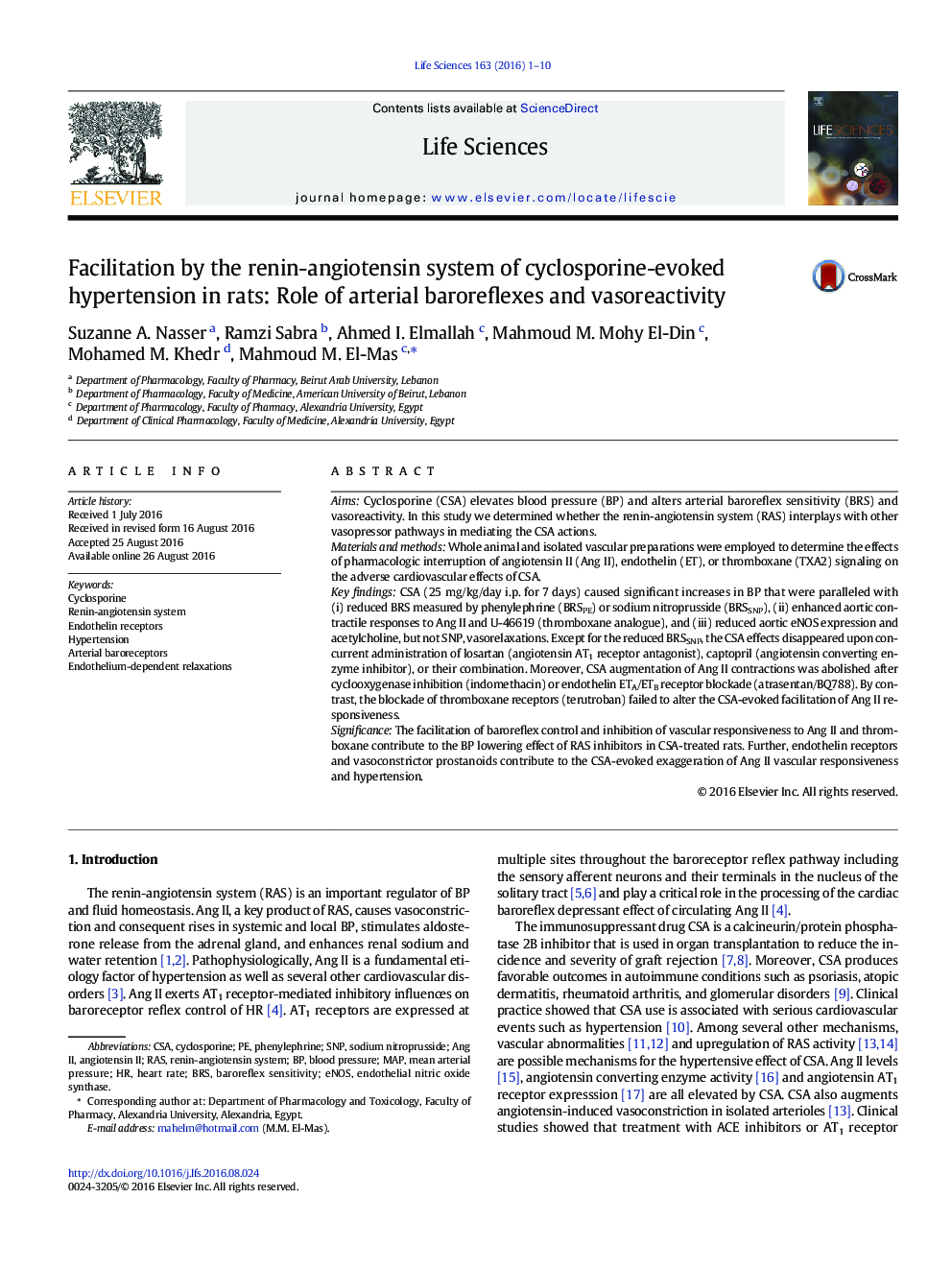| کد مقاله | کد نشریه | سال انتشار | مقاله انگلیسی | نسخه تمام متن |
|---|---|---|---|---|
| 2550377 | 1560565 | 2016 | 10 صفحه PDF | دانلود رایگان |

AimsCyclosporine (CSA) elevates blood pressure (BP) and alters arterial baroreflex sensitivity (BRS) and vasoreactivity. In this study we determined whether the renin-angiotensin system (RAS) interplays with other vasopressor pathways in mediating the CSA actions.Materials and methodsWhole animal and isolated vascular preparations were employed to determine the effects of pharmacologic interruption of angiotensin II (Ang II), endothelin (ET), or thromboxane (TXA2) signaling on the adverse cardiovascular effects of CSA.Key findingsCSA (25 mg/kg/day i.p. for 7 days) caused significant increases in BP that were paralleled with (i) reduced BRS measured by phenylephrine (BRSPE) or sodium nitroprusside (BRSSNP), (ii) enhanced aortic contractile responses to Ang II and U-46619 (thromboxane analogue), and (iii) reduced aortic eNOS expression and acetylcholine, but not SNP, vasorelaxations. Except for the reduced BRSSNP, the CSA effects disappeared upon concurrent administration of losartan (angiotensin AT1 receptor antagonist), captopril (angiotensin converting enzyme inhibitor), or their combination. Moreover, CSA augmentation of Ang II contractions was abolished after cyclooxygenase inhibition (indomethacin) or endothelin ETA/ETB receptor blockade (atrasentan/BQ788). By contrast, the blockade of thromboxane receptors (terutroban) failed to alter the CSA-evoked facilitation of Ang II responsiveness.SignificanceThe facilitation of baroreflex control and inhibition of vascular responsiveness to Ang II and thromboxane contribute to the BP lowering effect of RAS inhibitors in CSA-treated rats. Further, endothelin receptors and vasoconstrictor prostanoids contribute to the CSA-evoked exaggeration of Ang II vascular responsiveness and hypertension.
Journal: Life Sciences - Volume 163, 15 October 2016, Pages 1–10